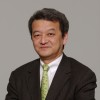TOKYO – Harvard Professor Ezra Vogel’s 1979 book, Japan as Number One: Lessons for America, became an instant bestseller in Japan. The flattering title certainly helped sales, but it was the book’s central argument – that the Japanese approach to governance and business were superior to others – that really made a splash.
At the time, Japan was riding high. Its GDP had grown by about 10% annually for most of the 1950s and 1960s, and 4-5% during the second half of the 1970s – a trend that would continue throughout the 1980s. But Japanese businessmen and political leaders were not sure whether Japan had succeeded economically because of its unique system or despite it. For them, Vogel’s book amounted to a kind of seal of approval and reinforced the belief that Japan could soon surpass the United States to become the world’s largest economy.
In the years that followed, Japan appeared to be progressing toward this goal. In the second half of the 1980s, Japanese stock prices tripled, and real asset prices rose fourfold. In 1988, Japan’s GDP amounted to 60% that of the US (in current dollars), and, with a population about half the size at the time, its GDP per capita was significantly higher. In 1995, following a sharp appreciation of the yen, Japan’s economy was about three-quarters the size of the US economy.





















 Toi Staff
Toi Staff Gideon Levy
Gideon Levy Belen Fernandez
Belen Fernandez Tarik Cyril Amar
Tarik Cyril Amar Rami G Khouri
Rami G Khouri Mort Laitner
Mort Laitner Bradley Blankenship
Bradley Blankenship
